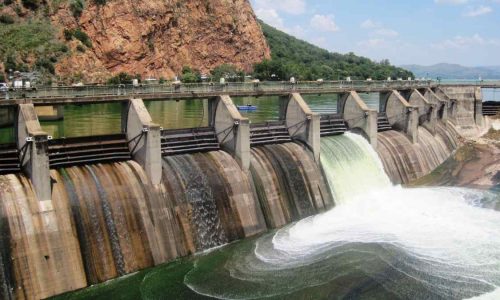Indonesia needs to develop its renewable energy sources and form a Strategic Petroleum Reserve in order to achieve energy autonomy, according to National Energy Council.
The government established the Council in 2007, which comprises of seven ministers who are directly in charge of the supply, transportation, distribution and utilization of energy.
Satya Widya Yudha, a board member of the Council, said renewable energy source could replace fossil fuels and reduce the country ‘s dependence to importing oil and other fossil fuels.
“We hope to be able to use alternative primary energy sources such as geothermal and wind energy. If we still want to use fossil fuels, we can use clean fossil fuels such as natural gas. We should also develop electric vehicles (EV) and convert oil into gas since gas is abundant,” he told Indonesia Business Post on March 24, 2022.
Indonesia’s daily fuel consumption amounts to 1.6 million barrels oil per day. From that figure, around 650,000 to 700,000 barrels per day are produced domestically, while the rest is imported. Unfortunately, the portion of renewable energy in Indonesia’s total energy production is still low at 12 %. Indonesia is targeting 23% of renewable energy use by 2025.
Lawmaker Kardaya Warnika, a member of the House of Representatives (DPR) Commission VII overseeing energy, research and innovation and industry, said there were several advantages for Indonesia to develop renewable energy.
First, he explained, Indonesia would not run out of power by using renewable energy. Second, the cost of renewable energy will decline over time.
“On the contrary, the oil and coal prices will be more expensive in the long run due to their rarity,” he said.
Warnika explained that renewable energy in Indonesia was still deemed as a “step child”. In the first term of President Joko Widodo’s administration, the regulation stipulated that the price of renewable energy would be lower than non-renewable sources of energy. In reality, the opposite applies. The cost of green electricity is higher.
“Another issue is the lengthy process of negotiating electricity prices for renewable energy power plants,” he said.
Third, the government should develop renewable energy, instead of ordering state-owned enterprises, since it is a government matter.
Citing an example, Warnika said the government could not delegate the task of developing renewable energy to state-owned electricity company PT PLN as the company, as a business entity, should gain profit. It is more profitable for PLN to develop coal-fired power plant than renewable energy power plant.
“In their view, everything revolves around profit, financial matters and company profits, not the state. The state does not receive profits from the company if the company makes a profit. The state should be responsible for developing renewable energy sources,” he added.
Establishing Strategic Petroleum Reserve
Beside developing renewable energy for its energy independence, Indonesia is also establishing its owned Strategic Petroleum Reserve for its defense sectors. Strategic Petroleum Reserve is a stocks of petroleum that will be stored up for emergency use like in war time situation and disasters for defense equipment and emergency response.
Yudha said the Council has proposed to the President to issue a presidential decree on creating a Strategic Petroleum Reserve or a Buffer Reserve for Energy. By the presidential decree, government agencies can received funds from the state budget to establish the strategic reserve.
“The project has to be set up independently, since this involves national sovereignty, thus it has to be financed internally,” he said.
Yudha said that he was not comfortable to discuses the cost needed to establish a strategic petroleum reserve in advance because the presidential decree was still on the drafting process.
“We are trying to figure out the extent to which the state can finance the project,“ he said , adding that he will inform more to the public once the decree has been issued by president.
Lt. Gen. (ret.) Kiki Syahnakri, former Army deputy chief of staff in 2000-2002, said Indonesia needed to established a Strategic Petroleum Reserve, because based on defense ministry data, “Indonesia’s petroleum reserve can only last three days in emergency situation like war or disasters.”
He cited the Russia-Ukraine war as an example. Russia decided to stop its gas supply to Western Europe after the latter imposed sanction to Russia’s invasion to Ukraine. It is not impossible that Indonesia will face the same situation in the future, so in his opinion energy resilience is quite important.
Big countries like the US, Russia and China have their own petroleum reserve for several months or years. Even as a superpower country, the US must need enormous energy resilience to support its military to meet its vast hegemonic needs. That is why the US has interest to maintain its hegemony in the Middle East. Developing countries like Indonesia and other ASEAN countries need to increase their energy resilience to become energy independence.









